Early life
He was born on 28 August 1805 at East Cowes, where his father, John Ward, was collector of customs. His mother Martha was a sister of Thomas Arnold of Rugby. As a young man he associated with Arnold, Richard Whately and other liberals. [1] [2]
In 1831 Ward edited with Arnold the short-lived weekly The Englishman's Register, of which Arnold was the proprietor. He gave up the law, for which he had been trained, on his appointment in 1837 to an inspectorship of prisons. The following year, after some months as private secretary to John Lambton, 1st Earl of Durham, became through his influence secretary to the New Zealand Colonization Company. [1]
Diplomat
Early in 1841 Ward was appointed British commissioner for the revision of the State tolls. In 1844 he was sent to Berlin as British commissioner for the settlement, through the arbitration of Frederick William IV of Prussia, of the so-called Portendic claims on France, arising out of a blockade by French ships of part of the African coast. [1]
In summer 1845 Lord Aberdeen appointed Ward consul-general at Leipzig, with a commission to visit places in Germany where conferences of the Zollverein would be held. At the end of 1850 Lord Palmerston instructed him to act as secretary of legation at Dresden during the diplomatic conferences held in there, and he saw the results achieved by the policy of Austria, represented by Prince Felix of Schwarzenberg. In 1854 he attended the Munich exhibition of arts and manufactures, and wrote a report on the state of technical instruction in Bavaria. In 1857 he was charged with a political inquiry into Schleswig-Holstein; but his report was left unpublished by Lord Clarendon. [1]
In 1860 Ward, after being made a C.B., was nominated chargé d'affaires and consul-general for the Hanse Towns and the surrounding parts of Germany. Negotiating in 1865, with Lord Napier and Ettrick, a commercial treaty with the Zollverein, he was in 1866 raised to the rank of minister-resident. [1]
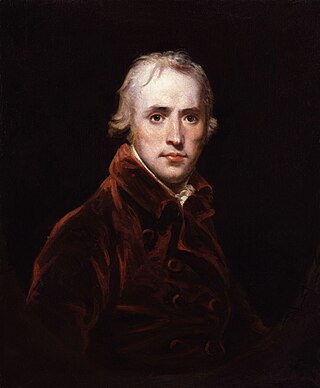
John Hoppner was an English portrait painter, much influenced by Reynolds, who achieved fame as a brilliant colourist.

Charles Francis Adams Sr. was an American historical editor, writer, politician, and diplomat. As United States Minister to the United Kingdom during the American Civil War, Adams was crucial to Union efforts to prevent British recognition of the Confederate States of America and maintain European neutrality to the utmost extent. Adams also featured in national and state politics before and after the Civil War.
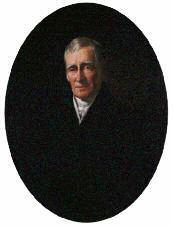
Charles Arbuthnot was a British diplomat and Tory politician. He was Ambassador to the Ottoman Empire between 1804 and 1807 and held a number of political offices. He was a good friend of the Duke of Wellington. His second wife, Harriet, became a hostess at Wellington's society dinners, and wrote an important diary cataloging contemporary political intrigues.
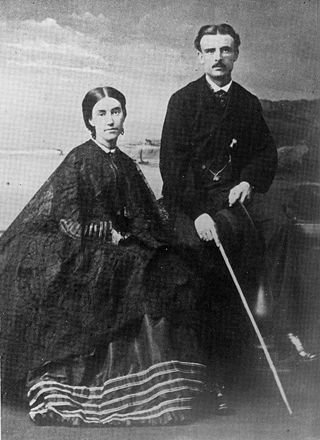
Sir Frederick Napier Broome was a colonial administrator in the British Empire, serving in Natal, Mauritius, Western Australia, Barbados and Trinidad and Tobago. The Western Australian towns of Broome and Broomehill are named after him. He has signed his name as F. Napier Broome.
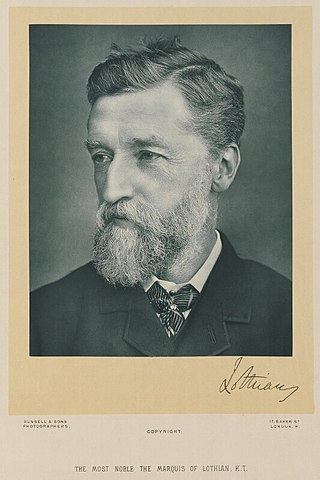
Schomberg Henry Kerr, 9th Marquess of Lothian,, styled Lord Schomberg Kerr until 1870, was a British diplomat and Conservative politician. He served as Secretary for Scotland under Lord Salisbury between 1887 and 1892. He was usually styled simply as Lothian.

Sir Woodbine Parish KCH was a British diplomat, traveller and scientist.
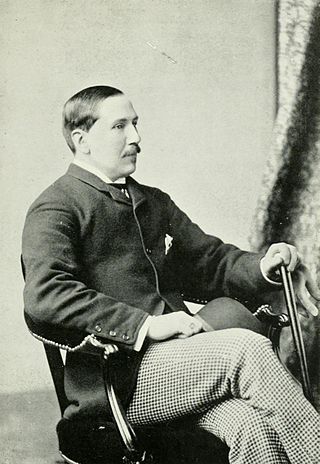
Sir Edward Walter Hamilton,, also known as Eddy Hamilton, was a British political diarist and Joint Permanent Secretary to the Treasury.

William Richard Hamilton, FRS, was a British antiquarian, traveller and diplomat.
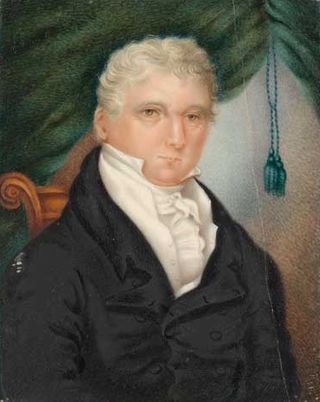
Simeon Lord was a pioneer merchant and a magistrate in Australia. He became a prominent trader in Sydney, buying and selling ship cargoes. Despite being an emancipist Lord was made a magistrate by Governor Lachlan Macquarie, and he became a frequent guest at government house. His business dealings were extensive. He became one of Sydney's wealthiest men. He was at various times a retailer, auctioneer, sealer, pastoralist, timber merchant and manufacturer. He is mentioned in many Australian History books, in particular regarding his status as an emancipist.

Lewis David Einstein was an American diplomat, historian апd art collector.
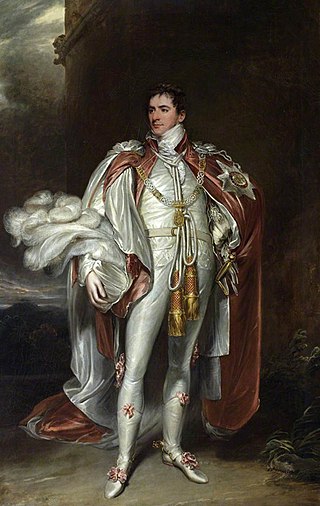
Sir Arthur Paget GCB, PC was a British diplomat and politician.

Sir Francis Oswald Lindley was a British diplomat who was HM Consul-General in Russia in 1919, British High Commissioner in Vienna 1919–1920, Ambassador to Austria 1920–1921, Ambassador to Greece 1922–1923, Minister in Oslo 1923–1929, Ambassador to Portugal 1929–1931, and finally Ambassador to Japan 1931–1934. Lindley was described as "a rather tough old character in some respects and very outspoken in his likes and dislikes."
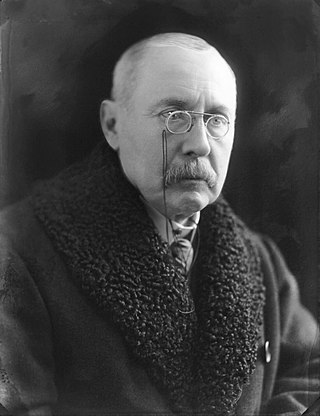
Sir Arthur Henry Hardinge,, was a senior British diplomat.

William Dougal Christie was a British diplomat, politician and man of letters.
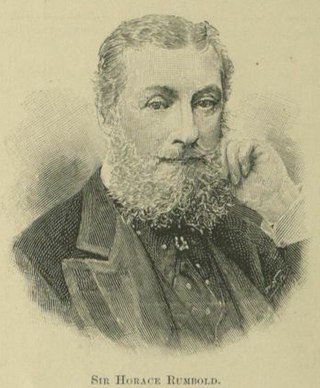
Sir Horace Rumbold, 8th Baronet, was a British diplomat who was minister or ambassador to several countries. He succeeded his brother, Charles, as Baronet in 1877.
Sir Michael Palairet was a British diplomat who was minister to Romania, Sweden and Austria, and minister and ambassador to Greece.
John Cordy Jeaffreson was an English novelist and writer of popular non-fiction. He also spent periods teaching and as an inspector of historical documents.
This page is based on this
Wikipedia article Text is available under the
CC BY-SA 4.0 license; additional terms may apply.
Images, videos and audio are available under their respective licenses.
![]() This article incorporates text from a publication now in the public domain : Lee, Sidney, ed. (1899). "Ward, John (1805-1890)". Dictionary of National Biography . Vol. 59. London: Smith, Elder & Co.
This article incorporates text from a publication now in the public domain : Lee, Sidney, ed. (1899). "Ward, John (1805-1890)". Dictionary of National Biography . Vol. 59. London: Smith, Elder & Co.













